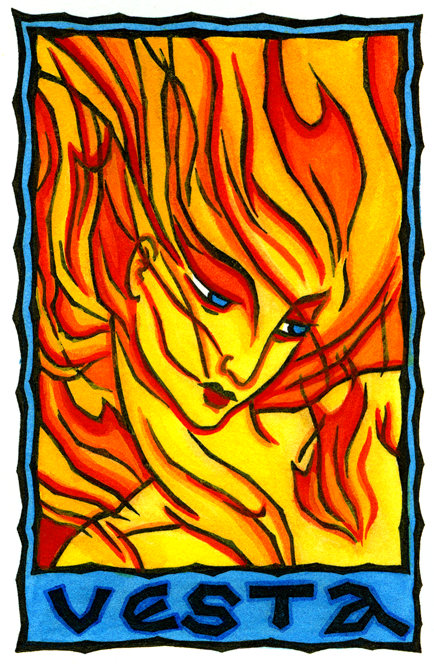 I am first and last.
Vesta is the Roman Goddess of fire and the hearth, Whose circular temple in Rome was considered the central hearth of the City. "Vesta" means simply "hearth," and comes from the same root meaning "to shine" as the Greek "Hestia," with Whom She was identified. Vesta is one of the most ancient Roman Goddesses, Whose worship remained of an ancient character. In the earliest times of Her worship, She was considered a Goddess of the earth as well as fire, perhaps in the recognition that the deep heart of the Earth is fiery. Later She became the Goddess of ceremonial or central fire, and was worshipped by the state, where She presided over the central altar, as well as in the home, where offerings were made to Her at every meal. Her national cult was tended by the famous Vestal Virgins, who took vows of chastity and tended Her fire, never allowing it to go out. The Vestals were given great honor and considered highly sacred persons. Vesta represents the sacred heart or hearth of the home, the central fire which supplies heat and on which food is cooked. Nourishment and warmth, home and the center are Hers. Vesta was rarely depicted, and was instead represented by a naked flame. This card in a reading indicates issues of centering and grounding. It may be time to come in from the cold, to visit a place of home and recharge. Or it may be that it is important at this time to get to the heart of the matter, and to find what it is that fires you up. Vesta was equated with the Greek Hestia; the early Roman Goddess of Fire Caca may be a forerunner of Vesta. This design is available on prints via ArtPal. |